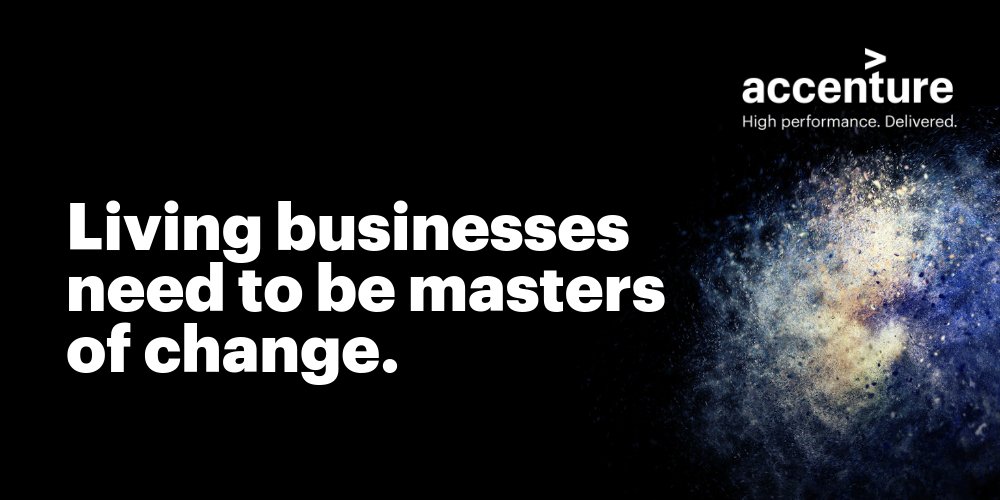Other parts of this series:
Insurance executives will need plenty of courage to steer their organizations through the storm of digital disruption.
Insurers that are looking to become living businesses, and harness the huge potential of new digital technologies, need an especially important resource. Capital and skills, of course, are essential. But just as vital is courage.
Without courageous leadership, insurance providers are likely to struggle to let go of their traditional businesses and seize the new opportunities created by digital technologies. Instead of rotating to the new, these carriers will most likely remain glued to the past. Digital disruption will undermine their profitability and impair their competitiveness. It may eventually jeopardize their survival.
Transforming a well-established organization into an agile living business is by no means easy. As I mentioned in my previous blog post [Link], it requires companies to simultaneously transform their core businesses; grow these legacy businesses; and increase the scale of their new digital activities. During this transformation they must initiate a “wise pivot” that carefully allocates resources between their core businesses and their fledgling digital initiatives. This is a delicate balance that needs to be recalibrated frequently, but it can be achieved by incumbent insurers if they make managing this transformation a priority. Here are two fine examples:
- Generali Group recently unveiled its new strategic plan at an investor presentation. It showed how Generali Italy has achieved impressive results from its simplification program. The company has digitalized all of its key processes, all of its agencies are completely digitally-enabled and around half its policies are now issued digitally. This transformation has positioned Generali Italy for strong revenue growth and enabled it to develop new business models that will leverage its Welion health and welfare company and its new Jeniot connected services venture.
- Discovery has completely transformed itself from a highly innovative life and health insurer in South Africa to become a leading provider of health prevention services and solutions worldwide. It operates as a service provider for major insurers around the world and has also expanded its insurance offering in South Africa to include P&C cover. This massive pivot required a major transformation of Discovery’s core IT capability.
In both of these examples, courageous, forward-looking leadership was vital to ensure success on the challenging journey of transformation. The companies’ leaders needed to identify clearly the customers, channels and products that their organizations were going to address. They also had to define how their businesses were going to engage with key markets. Then, they had to organize their company’s capabilities to support this strategy.

Once the transformation process gets underway the courage of a company’s leaders really comes to the fore. We calculate that the initial transformation of an organization into a living business will take around two to three years. Thereafter, however, the organization will need to frequently shift its resources and alliances to counter threats to its business and seize new opportunities. This will require unwavering courageous leadership to ensure that the company doesn’t settle for a new norm but continues to harness emerging technologies and push into new markets.
We’ve identified five key practices that courageous living businesses need to perform well:
- Target new business value and models: Value is created by using digital technologies to disrupt traditional activities, create new markets and develop business partnerships.
- Design innovative products and services: Revenue growth is fueled by an evolving portfolio of hyper-relevant customer offerings.
- Build engagement channels: The customer experience is constantly enhanced by improving and extending consumer “touchpoints”.
- Scale up platforms and ecosystems: Data resources and systems are structured to support rapid, agile product development and cross-industry partnerships and alliances.
- Rewire culture and organization: Traditional hierarchical workforce structures are replaced by an adaptive, flexible culture that encourages innovation and a “customer mindset”.
For more information about the effects of digital disruption and how companies can transform themselves into agile living businesses, take a look at these links.
Disruption need not be an enigma










